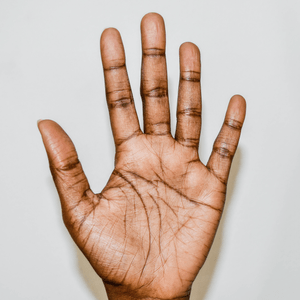This Is Why Some People Are Ticklish—and Others Aren’t

Ever wonder why some people are ticklish, while others aren't? Or why you can't tickle yourself? Check out the fascinating science behind this sensory experience.
If you’re ticklish, you know that strange mix of pleasure, surprise, and weirdness when someone finds your ticklish spots. But have you noticed that some people aren’t ticklish? And some people enjoy being tickled and others who find it miserable? Good news: It’s all normal.
“As with any sensory experience, people have different levels of sensitivity to touch and tickle,” says Alicia Walf, PhD, a senior lecturer in cognitive science at Rensselaer Polytechnic Institute in Troy, New York.
And your mood and history with tickling both affect whether you find it delightful or a form of torture. Here’s more about the fascinating science of ticklishness.
What causes a tickle?
Every time you’re tickled, a chain reaction begins involving your brain and your sense of touch. First, it activates “nerve endings in our skin for pain and sensory receptors that are sensitive to light touch and pressure,” Walf says. From there, signals go out to the somatosensory cortex in the brain—that’s the brain region where you identify touch. Through the brain’s limbic structures, such as the anterior cingulate cortex, the brain addresses how it feels, Walf adds. (Think: Does that feel good—or not?)
Next, your brain prompts you to reflexively giggle. “The laughter is processed through the hypothalamus, a conduit between mood and somatic responses,” says Walf. “The cerebellum in the back of the brain exquisitely coordinates all of these responses (and all sensory and movement processes of the brain).”
If you’re one of those people who starts giggling before the other person’s hands are even on you, you probably wonder what’s up with that. It’s about surprise and anticipation—as well as context. “The giggling in anticipation often happens with someone you are comfortable with—not a complete stranger,” Walf says.
Why? The theory is that we’re recalling the pleasant feeling of being tickled by close friends and family in the exact moments before the tickling starts, Walf explains, and that may prompt up to erupt in anticipatory giggling.
You’re more likely to do this pre-giggling if you have happy memories about past tickling with this person and you’re currently in a good mood.
Why can’t you tickle yourself?
To feel that ticklish sensation, there needs to be an element of surprise—and that’s something only another person can supply. In fact, multiple studies, including a report on tickling published in NeuroReport, suggests that we only feel ticklish when someone else is doing it to us because that way our brain—in particular, our cerebellum—can’t predict what sensation is coming next.
Fun fact: There is an evolutionary point to being able to feel and react to a feather barely grazing your foot. “Being very responsive to even slight sensations—especially in places you cannot see and are often particularly ticklish like the bottom of the feet and back of the neck—was adaptive, because these are areas that are important for us to protect from injury,” Walf says. “Even if that injury is the bite of a mosquito on the back of the neck, we feel that slight sensation and reflexively swat the sensation away or try to wriggle away from the source.”
Another theory of tickling is that it is a form of social bonding, just like in animals, and a way to teach children about touch, a PLoS One study suggests. When we tickle our baby’s tummy with kisses or let our preschooler tickle us, we help teach kids which areas of the body are sensitive and what different sensations might be.
Why are only some people ticklish? This is one of the unsolved mysteries of the body. While scientists aren’t sure why some people are much more prone to being ticklish than others, they do know that current mood influences how ticklish a person is at any given time, Walf says.
How you feel about tickling can depend on your mood
Similar to why some people are ticklish and others are not, mood can influence why some people like or dislike it. “How our brains and bodies interpret tickling is dependent on our emotional state,” explains Katie Lear, a child and adolescent therapist in Davidson, North Carolina. “A lot of research suggests that when we are feeling calm and relaxed, our body might interpret tickling as pleasurable, but that’s not the case when someone is angry or stressed.”
Feeling stressed, after all, puts us on high alert, Walf adds. “When we are stressed, we are more attentive and responsive to the information coming through our senses,” tipping the balance from a tickle being a surprising, pleasurable sensation to one that’s unbearable, she explains. (Check out these expert-approved stress management tips.)
Your overall temperament also plays a key role. Are you a giggler in general? Then you may be more susceptible to being ticklish, according to science. In a 1990 study of 100 college students published in Biological Psychology, preliminary findings suggested that people who are prone to smiling and laughing may be more likely to be ticklish.
Another ticklishness study in the journal Cognition & Emotion found that a predisposition to laughter is associated with feeling ticklish.
“We all process sensory information in different ways,” says Lear. “If someone isn’t ticklish or actively dislikes tickling even when calm, that doesn’t mean something is wrong with them—it’s just a personal preference.”

When tickling can trigger anxiety or panic
Loving, consensual touch is powerful and essential to healthy relationships, says Lear. (Find out what happens to your body when you get a hug.) That said, she adds, “touching someone in a way that doesn’t feel comfortable for them has the opposite effect and can erode your relationship over time.”
If your brain has formed a link between tickling and a negative or stressful event (such as being mercilessly teased by an older sibling), being tickled could definitely trigger anxiety or panic. “When you consider that tickling often comes as a surprise, and without clear consent, you can imagine how invasive it might feel to someone who has had previous negative experiences with unwanted tickling or other forms of unwanted touch,” says Lear.
Tickling may be more likely to freak you out early in a relationship when you “haven’t established appropriate trust,” says Lear.
Beyond that, it’s alarming to feel like your boundaries aren’t being respected. “Consent is an issue with tickling, and it’s built right into the game,” says Lear, “how many times have you seen someone saying ‘No, stop it!’ as they’re being tickled, only to have the tickling continue?”
While sometimes these protests are a part of the game and everyone’s in on the joke, that isn’t always the case, she points out. Being repeatedly tickled by your date or partner after you’ve asked them to stop is a “boundary breach and can diminish trust in a relationship,” Lear says.
What do you do if someone keeps tickling you—and you hate it
If the tickling is coming from an innocent place, try having a heart-to-heart. Chat when things are going well, not in the middle of a fight, so your partner is really hearing what you’re saying. Lear recommends focusing on how it makes you feel—not what they did wrong. Her sample script: “I feel really panicked and not in control when you tickle me after I tell you to stop. Please don’t tickle me anymore.”
Keep in mind that your significant other might be tickling as a way to bond as a couple. “Because tickling is such a common bonding experience for parents and children, some people grow up seeing tickling as a way of expressing love and affection,” Lear points out. “Speaking about it in a non-accusatory and even playful way can help your partner empathize with your plight without shaming or otherwise damaging your intimacy.”
Next, find out the scientific explanations behind these quirky body reactions.






